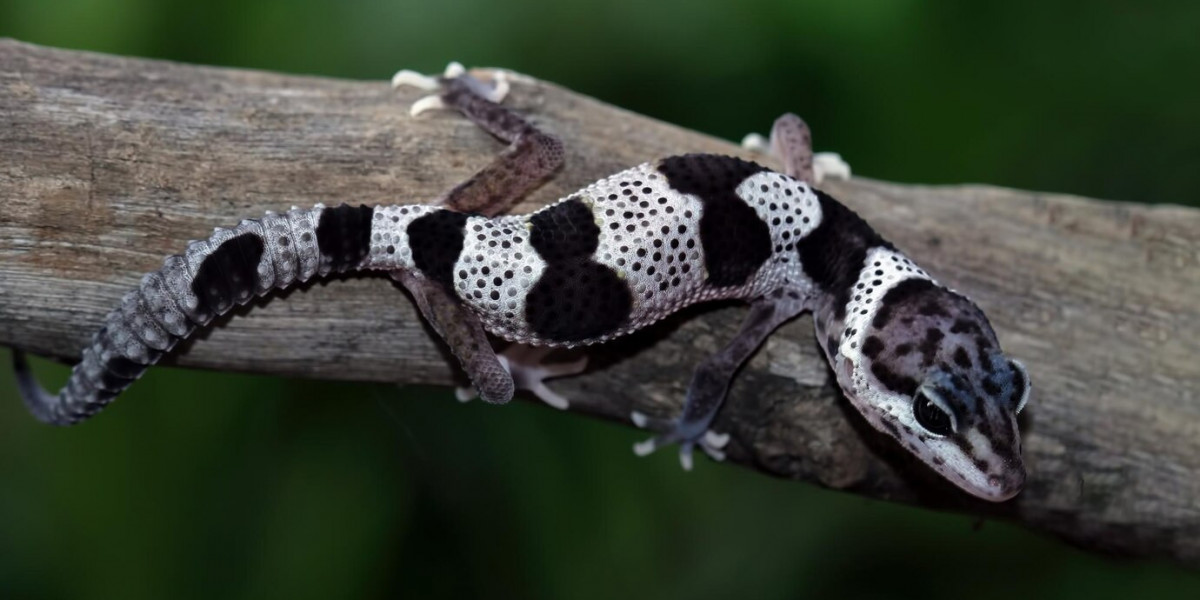Crested geckos are one of the most popular pet reptiles out there. With their unique look, low-maintenance care requirements, and relatively gentle temperament, it’s easy to see why so many people are drawn to them. However, just because they’re easy to care for doesn’t mean they’re immune to health issues. In fact, purchasing a gecko that’s in poor health can lead to unnecessary stress and costly vet bills down the road. That’s why, before you purchase a crested gecko, you need to be informed, vigilant, and thorough.
What Makes a Healthy Crested Gecko?
Before we dive into how to identify a healthy crested gecko for sale, let’s talk a bit about what constitutes a healthy gecko.
Clear Eyes: A healthy crested gecko will have bright, clear eyes with no cloudiness or discharge. If a gecko’s eyes appear sunken, murky, or watery, that could be a sign of dehydration or illness.
Active Behavior: Crested geckos are nocturnal, but they should still be fairly active during their waking hours. A healthy gecko will be curious and alert, moving around its enclosure and exploring. If your gecko is lethargic or unresponsive, that could be a sign of a problem.
Healthy Skin: The skin of a healthy gecko should be smooth and free of visible wounds or marks. Crested geckos shed their skin regularly, and if they’re having trouble shedding, it can lead to skin issues that may require attention.
Good Body Condition: A healthy crested gecko should have a firm, rounded body. If a gecko looks overly thin or has visible ribs, that could be a sign of malnutrition, parasites, or stress.
Now that you know what to look for, it’s time to dive deeper into how to ensure the crested gecko you’re thinking about buying is indeed healthy.
Where to Find a Healthy Crested Gecko to Add to Your Collection
The first step in ensuring you buy a healthy crested gecko is choosing the right place to purchase it. Not all pet stores, breeders, or online shops are created equal. To give your new pet the best start, consider these tips:
1. Go to Reputable Breeders
Reputable breeders specialize in breeding and raising geckos. They will often be able to provide you with information about the gecko’s genetics, health history, and any previous illnesses. Many experienced breeders are transparent and will even provide you with the gecko’s lineage. If you're looking for specific crested gecko morphs, breeders will be a good place to start.
2. Avoid Pet Stores That Don’t Specialize in Reptiles
While large pet stores often have geckos for sale, they may not have the expertise necessary to guarantee the health of the animals. Many times, these stores do not properly maintain the reptiles’ habitats, which can lead to health issues. Look for pet stores that specialize in reptiles, as they are more likely to have experienced staff and better-quality geckos.
How to Check for Signs of Illness
Once you’ve selected a gecko for sale, you need to give it a thorough check to ensure it's healthy. Here are a few key signs of illness to watch for:
Breathing Difficulties: If the gecko is wheezing or has labored breathing, this may indicate a respiratory infection.
Visible Parasites: If you see tiny, moving specks on the gecko’s body, these could be external parasites like mites.
Discharge: Any mucus or discharge from the eyes, nostrils, or mouth should raise a red flag.
Lethargy: As mentioned earlier, a healthy crested gecko should be active during its waking hours. If the gecko is sluggish or unresponsive, that could point to underlying health problems.
The Importance of Genetics in Crested Geckos
Many people purchase crested geckos for their unique colors, patterns, and markings. These are known as morphs, and they can be highly sought after. However, it’s essential to understand the genetic background of the gecko you are purchasing. Genetics play a huge role in the gecko’s health, color, and temperament. Reputable breeders will be able to provide detailed genetic information for the gecko, ensuring you know what you’re getting.
If you’re looking to buy crested geckos with a specific morph, make sure the breeder or seller can confirm that the gecko you're considering is of the desired genetic lineage. For instance, if you're interested in a particular crested gecko morph, ensure the breeder can provide information about the gecko’s ancestry to guarantee it’s what you’re looking for.
Setting Up the Perfect Habitat
Once you’ve found the perfect crested gecko and brought it home, one of the most critical aspects of ensuring its long-term health is setting up an appropriate habitat. The enclosure should be a safe, comfortable environment that mimics the gecko's natural habitat. Here’s what you need to do:
1. The Right Enclosure
Crested geckos do best in vertical enclosures, as they are arboreal (tree-dwelling) animals. Aim for an enclosure that provides ample height for climbing. A 20-gallon tall terrarium or similar-sized setup is ideal for one adult crested gecko. If you plan to house more than one, you’ll need a larger setup, ensuring each gecko has its own space to explore.
2. Humidity and Temperature Control
Crested geckos require a humidity level of 50-70%. To maintain this, consider placing a hygrometer in their enclosure to monitor the humidity levels. Misting the tank once or twice a day can help, but avoid soaking the habitat too much as excess moisture can lead to health problems like fungal infections.
Temperature control is also crucial. Crested geckos thrive at temperatures between 72°F and 78°F during the day, with a slight drop at night. Avoid placing the enclosure in direct sunlight or near heat sources, as temperature extremes can cause stress or health issues.
Feeding Your Crested Gecko
A crucial part of keeping your crested gecko healthy is feeding it properly. Fortunately, feeding crested geckos is relatively simple, as they’re omnivores and can thrive on a variety of diets.
1. Commercial Diets vs. Fresh Foods
Many gecko owners opt for commercial crested gecko diet powders that provide a balanced meal. These diets are formulated specifically to meet their nutritional needs. Mix the powder with water to create a paste, and serve it in a shallow dish.
You can also supplement their diet with fresh foods, such as:
Fruit: Crested geckos enjoy fruits like mashed banana, papaya, and mango. Fresh fruit should be offered in small quantities to avoid attracting pests and should be removed after a few hours.
Insects: Crickets, dubia roaches, and other small insects are a good source of protein. Dust these insects with calcium powder to ensure the gecko receives enough nutrients for healthy growth.
2. Feeding Schedule
Crested geckos are relatively low-maintenance when it comes to feeding. Typically, you should feed your gecko 2-3 times a week, but this can vary based on its age. Juvenile geckos may need food more frequently, while adults can often thrive with less.
Creating a Bond with Your Crested Gecko
Although crested geckos are known for being relatively low-maintenance, they can also form bonds with their owners over time. With regular handling, you can develop a trusting relationship with your pet. Just be sure not to overdo it — geckos are naturally shy creatures and can become stressed if handled too frequently. Keep interactions gentle and calm to ensure your gecko feels comfortable.
Wrap-up
So, whether you’re a first-time buyer or an experienced collector, don’t hesitate to invest time in finding the perfect crested gecko for your family. When you're ready, head over to Wilbanks Reptiles, a trusted source for healthy, vibrant crested geckos, and start your journey with a new pet today!
FAQ’s
Q1. How old is the gecko?
A: Crested geckos can live up to 15 years in captivity, so knowing its age will help you anticipate potential health concerns. Older geckos may have different care needs than younger ones.
Q2. Has the gecko ever had any health problems?
A: A reputable breeder will be open about any past health issues. If the gecko has had any diseases or conditions, it's important to know about them before purchasing.
Q3. Has the gecko been handled often?
A: Some geckos that haven’t been socialized might be more skittish or stressed out in a new home. Asking about its temperament can help you gauge whether the gecko will adapt to life with you.










